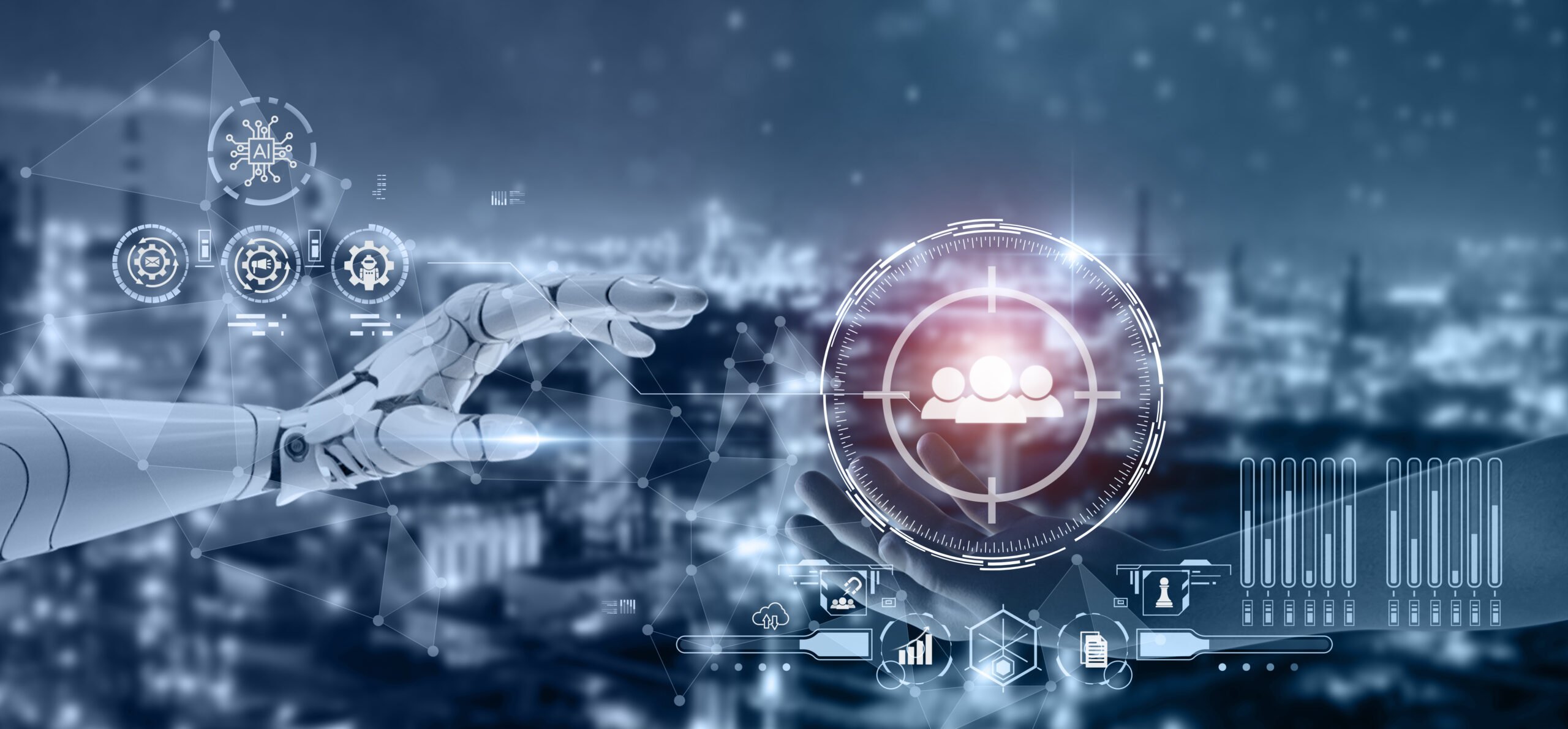
In a bold move that signals its artificial intelligence (AI) ambitions, Meta has recently made significant investment in Scale AI, a leading provider of data annotation, model evaluation, and fine-tuning services for AI systems, valuing the organization at over US$29 billion. In the ever-intensifying race to dominate AI, this move is expected to have ripple effects throughout the AI ecosystem.
Reach out to discuss this topic in depth.
So why did Meta acquire a stake in Scale AI?
The deal, one of the largest in AI infrastructure history, is a calculated step to bridge critical gaps in Meta’s AI ecosystem and accelerate the development and deployment of cutting-edge foundation models across its platforms to catch up in the race with competitors such as OpenAI, Google, and Anthropic.
Meta, which in the past has acquired stakes in consumer technology companies for product expansion and user acquisition (with Instagram and WhatsApp), has pivoted its strategy to focus on owning the infrastructure for AI development. It signals that Meta wants to own the mission-critical parts of AI. It drives home the point that data sourcing, annotation and labelling capabilities, while so foundational, are strategic levers for competitive edge.
Scale AI brings with itself key capabilities in labelling, annotation, model training, red-teaming, bias mitigation, synthetic data generation, with expertise across computer vision, natural language processing, and Generative AI (gen AI) training.
It boasts of marquee clients such as Google, OpenAI, Microsoft, and the U.S. Department of Defense. This investment gives Meta direct control over high-quality, human-labeled datasets essential for model refinement, allowing it to internalize critical components of AI lifecycle. Scale AI’s infrastructure not only improves Meta’s ability to train and update models faster, but also test edge cases at scale, and automate data quality feedback loops.
Another key capability that Meta gets access to with their stake is Scale AI’s talent. Alexandr Wang, Scale AI’s founder and CEO, will now lead Meta’s newly formed “superintelligence” division. Further, Meta gets increased access to Scale AI’s pipeline of experts (including domain experts across multiple areas), engineers, and annotators. This access to highly specialized talent not only gives Meta a competitive edge but also allows it to internalize safety capabilities.
Key implications of the deal
While the deal instantly positions Meta as a more formidable force in foundational model development, it also sends powerful signals across the AI infrastructure, data services, and Trust & Safety (T&S) landscape
- Vertical integration is accelerating – Meta’s acquisition shifts the focus towards increasing vertical integration by leading foundation models. This represents a larger shift where enterprises want to own all the components of the AI development life cycle end-to-end and reduce their reliance on external vendors. While Meta already had capabilities in model development, the acquisition strengthens its capabilities in synthetic data for model training, labelling and annotation, and model evaluation. To have greater control over operations, several other hyperscalers are evaluating building these capabilities in-house or acquiring providers with specialized capabilities
- Enterprise clients are reconsidering vendor relationships – There have been multiple reports of Scale AI’s key customers evaluating and trimming their relationship and exploring alternate providers. The stake acquisition has brought into limelight the questions around data security and vendor neutrality to avoid conflict of interest. Hence, going ahead there is going to be greater decoupling and diversification among service providers offering training data and those running AI safety operations to reduce disruption caused by such a concentration risk again
- A window of opportunity opens for service providers – For IT-Business Process (BP) service providers that have long competed with Scale AI in the data and safety value chain, this moment is both disruptive and opportune. With some of Scale AI’s customers potentially planning on reducing their dependency, the acquisition represents a key opportunity for service providers to offer T&S, data operations, and model evaluation services. Additionally, smaller, niche firms across the AI ecosystem are also likely to gain more traction. IT-BP and small providers can play upon their neutrality and independence as key levers in addition to their capabilities
- Talent becomes a central strategic asset – The deal underscores that success in AI now hinges on access to highly specialized talent, particularly in areas such as AI safety, red-teaming, data governance, and vertical-specific annotation (in domains such as healthcare, geospatial). Enterprises and service providers that can attract and retain this expertise will be better positioned to support enterprise-grade AI development
The future outlook
The Meta–Scale AI deal doesn’t just reshape today’s competitive dynamics, it sets the stage for how the AI ecosystem will evolve next. By bringing data labeling, safety operations, and model refinement closer to the core of model development, Meta has signaled a broader shift in what it takes to stay competitive in this space.
As enterprises and service providers recalibrate their strategies, a new set of priorities and fault lines are beginning to emerge. As the dust settles, several important shifts are likely to unfold:
- Service providers will expand their AI data services and safety portfolios. To fill the emerging gaps, service providers are likely to double down on their services, building specialized capabilities for edge-case Quality Assurance (QA), model testing, and bias auditing while investing in data governance, AI risk labs, and safety annotation platforms
- A new wave of consolidation may emerge. Peer responses will shape the next wave of consolidation. Meta’s move may trigger a competitive response from other hyperscalers. This could lead to a new wave of Mergers & Acquisitions (M&A) activity in the AI infrastructure and safety stack
- The talent market is likely to get more competitive with movements intensifying. Enterprises and service providers will likely compete more aggressively to retain or attract talent. Movement of niche-skilled professionals, particularly in AI risk operations, labeling orchestration, and domain-specific annotation, will be a key trend to monitor, especially as T&S becomes a board-level priority. This talent migration represents an opportunity not only for enterprises but also service providers who can capitalize on this situation by attracting such talent
- Enterprises shifting away from Scale AI could encounter delays and cost overruns. As organizations reduce their dependency on Scale AI due to neutrality or confidentiality concerns, many will need to rapidly identify, evaluate, and onboard alternative vendors for multiple areas. This shift may result in disrupted workflows, retraining of annotators, and revalidation of data pipelines. Hence, the interim period may involve delays in AI launches and additional spending on integration, auditing, and assurance
- Regulatory attention is also likely to intensify. Given the size and strategic nature of the deal, antitrust bodies and digital competition regulators may examine whether Meta’s partial ownership of a leading AI infrastructure provider distorts the market
- Finally, there is going to be greater scrutiny of vendor relations going ahead. The structure and demands of upcoming RFPs for T&S, data operations, and model evaluation services are likely to evolve. Enterprises will begin including stricter clauses around data sovereignty, separation, vendor independence, and conflict-of-interest safeguards—creating both challenges and opportunities for service providers
Hence, the deal doesn’t just give Meta a competitive edge, it shakes up industry wide priorities and enterprise partnerships
If you have any questions, are interested in exploring this acquisition or AI safety further, or would like to discuss any other T&S related topics in more detail, feel free to contact Dhruv Khosla ([email protected])










